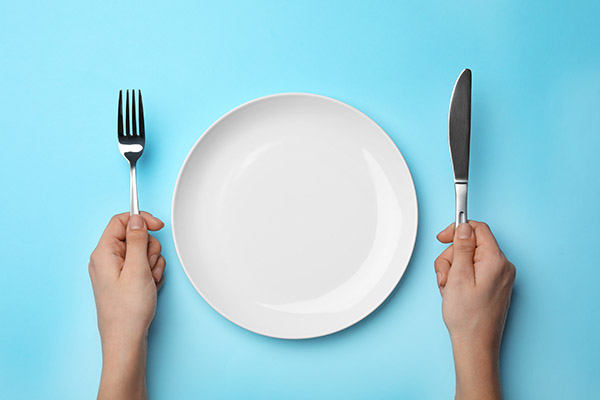 We all want to keep our teeth and gums healthy, but sometimes it's difficult to properly do denture care while enjoying the foods we love. The foods we consume can make a big difference in how well our dentures fit, so avoiding certain food items is an important step for easy denture care. Dentures are a great way to replace teeth that have been lost or missing, but they can cause trouble if you don't take care of them. One way to avoid the hassle is by avoiding certain foods. Here's what dentists recommend.
We all want to keep our teeth and gums healthy, but sometimes it's difficult to properly do denture care while enjoying the foods we love. The foods we consume can make a big difference in how well our dentures fit, so avoiding certain food items is an important step for easy denture care. Dentures are a great way to replace teeth that have been lost or missing, but they can cause trouble if you don't take care of them. One way to avoid the hassle is by avoiding certain foods. Here's what dentists recommend.
Sticky foods
Dentures should be handled with care, and it is important to take caution when consuming sticky foods, such as caramel. These kinds of foods stick to dentures and allow plaque to build up, which leads to tooth decay. These foods have a sticky texture, and they may cause dentures to slide out when eaten. Some examples of sticky foods are taffy, syrups, and gummy candies.
Chewy foods
You should also avoid chewy foods, such as steak, ribs, and chewing gums. These foods can prevent dentures from fitting because they don't allow dentures to sit in the mouth poorly. Chewy foods will also prevent dentures from holding denture adhesive as well. When dentures are not fitted properly, the gum tissue can become sore and develop sores, eventually leading to tooth loss.
Soups
Soups and broths can also cause denture problems if they are consumed while wearing dentures. The combination of hot soup or broth and dentures will cause the dentures to slip out of place, resulting in sores on the gums or lips. To avoid this, dentures should be removed when consuming soup or broth.
Hard foods
Hard foods are also denture avoidances. Foods such as nuts, pickles, and hard candies can get stuck in dentures, creating holes and cracks that cause dentures to become loose and fall off easily. Hard foods should always be avoided with dentures. To minimize the discomfort dentures cause, consider using denture adhesive. The denture adhesive will prevent dentures from becoming loose and easier to wear.
Citrus
Citrus fruits such as oranges, lemons, or limes contain citric acid, which is harmful to dentures. The acid can permanently damage dentures and denture adhesives. To avoid denture damage, it's advisable to thoroughly chew citrus fruits before eating and drink any juice out of a straw. Do not consume too much citrus because dentures will hold the citrus juice rather than denture adhesive, and dentures can become loose.
By avoiding these denture discomforts, dentures can be worn more comfortably, and teeth kept healthier. By using denture adhesive and dentures properly, dentures can last for a lifetime.
Once dentures are cracked or damaged, it's very difficult to repair them, so denture care is an essential part of living with dentures. The foods you consume can cause cracks in your denture, leading to serious denture problems, so dentures must be cleaned thoroughly after eating. By avoiding denture discomforts, dentures can be worn more comfortably, and you can maintain a healthier mouth.
Related Posts
Dentures are an excellent alternative to natural teeth, and denture care is as simple and easy as traditional dental care. This is particularly true for those who have lost all of their teeth or those who may be missing one or more front teeth due to an injury. But with any dental product, some precautions…
Anyone who has had dental crowns understands how beneficial they can be. Crowns are highly durable and work to improve the look of teeth, restoring a person's smile. A crown is often used to prevent a damaged tooth from deteriorating further. Others may need a crown to complete a bridge or implant treatment. A dental…
You might need emergency dentistry if you have a tooth infection. Emergency dentistry can help relieve the pain and discomfort associated with tooth infections. Emergency dentistry can also help to prevent the spread of tooth infections.Tooth infections occur when there is an infection in the tooth's pulp. The pulp is the soft tissue that contains…
